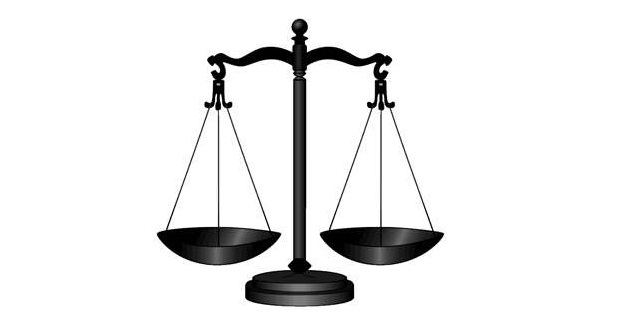
1. Why was Justice selected among all of God’s Qualities, considered to be a principle of religion?
In this study, before anything else, this point must be made clear as to why the great ‘ulama consider justice, one of God’s Qualities, to be a principle among the five pillars of religion.
God is the Knower (Alim), Powerful (Qadir), Just (Adil), Wise (Hakim), Merciful (Rahman), Compassionate (Rahim), Primordial (Azali), Eternal (Abadi), Creator (Khaliq) and Sustainer (Razzaq). Why was only justice selected from among all of these and it became one of the five pillars of religion?
In response to this important question, several points should be noted:
a. Among God’s Qualities, justice is so important that many other Qualities return to it because justice in the general, extensive sense means ‘putting everything in its place’.
Here, then, Hakim, Razzaq, Rahman and Rahim, and similar Qualities, are all dependent upon it.
b. Resurrection — just as we have mentioned — is related to Divine Justice as well as the mission of the Prophet and the responsibility of the Imams.
c. At the beginning of Islam, a difference of Opinion arose over the issue of the justice of the Creator:
A group of the Sunni Muslims, who were called the Ash’arites, completely denied God’s justice. They said that justice and oppression make no sense in relation to God. He is the Ruler of the entire created universe. It belongs to Him and whatever He does is just.
They did not even believe in the intellect’s good and evil. They said, “Our intellect alone cannot distinguish between good and bad, even the goodness of doing good or the evil of oppression…” and many such similar errors.
Another group of the Sunnis, who were called the Mu’tazilites, and all of the Shi’ites, believe in the principle of justice in relation to the Creator and they believe that God never commits oppression.
In order to separate out those two groups from one another, they called the second group, the Adliyah, in which justice (adl), as a principle, was the sign of the school and the first group were called ‘qhayr adliyah’ (other than justice). Shi’ites were among the ‘Adliyah.
The Shi’ites, in order to distinguish their school from that of the other Adliyah, placed imamate as one of the principles as well. Thus, wherever there is a discussion of ‘justice’ and ‘imamate’, this is in reference to the Shi’ite Imami school.
d. As the fundamentals of religion are continuous rays of the principles of religion and as the ray of justice of the Creator is extremely effective in human society, and the most important base for human society is formed by ‘social justice’, the selection or choice of the principle of justice as one of the principles of religion is a means to establish justice in human society and to struggle against any kind of oppression.
Just as the unity of Essence, Qualities of the Creator, the unity of worship of Him, the light and unity of His Oneness, a solidification of human society and the unity of Qualities are strengthened, the leadership of the prophets and imams is also inspired by the issue of ‘real leadership’ in human society. Thus, this principle of justice of the Creator, Who rules over the entire world, is the sign of the necessity for justice in all areas of human society.
The great created universe is based upon Divine Justice. Human society will also not remain without it.
2. What is Justice?
Justice contains two varying meanings.
a. The extensive meaning of this word, just as we have said, is ‘to put everything in its place’. In other words, it is being in balance and equilibrium. This meaning or sense of justice rules over the entire created universe, in the galaxies, within an atom, in the structure of a human being’s existence and all plants and animals. This is what the famous Tradition of the Holy Prophet refers to when he says, “It is by means of justice that all of the heavens and the earth exist.”
For example, if the powers of ‘attraction’ and ‘repulsion’ of the earth lose their sense of balance and one of these two is removed or destroyed, the earth will be drawn towards the sun, set on fire and destroyed or it will leave its circuit and wander in the endless space of the universe until it is destroyed.
b. Another meaning of ‘justice’ is ‘the following of individual rights’ and the point opposite is ‘oppression’ in the sense of taking ‘the rights of someone’ and giving them exclusively to others or to take away someone’s rights arid give them to another, to discriminate in the sense that some people are given their rights and others are not.
It is clear that the second meaning is a ‘particular’ one and the first one is ‘general’. It should be noted that both meanings are truthful in relation to God, even though the second meaning will be more emphasized here.
The meaning of God’s justice is not to remove the rights of a person nor give the rights of one to another nor to discriminate between people. He is Just in all sense of the word and the reasons or proof of His Justice will be mentioned in the next lesson.
Oppression, whether it be the taking away of a person’s rights or by giving the rights of one to another, or wastage and discrimination, does not exist in the pure Essence of God. He never punishes a person who does good deeds. He never encourages a person who does evil, no one will be held responsible for the sins of another. He does not burn the wet and dry together.
Even if everyone is in error in a large society, other than one person, God separates the accounts of that one person from that of others and does not punish that person along with sinners.
And the fact that the Ash’arites said, “Even if God sends all of the prophets to hell and all of the criminals and sinners to heaven, it is not oppression,” is vain babble and baseless.
The intellect, which is never polluted with superstition and discrimination, will not listen to these ugly words.
3. The Difference between Justice and Equality
Another important point which should be pointed out in this lesson is that sometimes ‘justice’ is confused with ‘equality’ and it seems that the meaning of justice is that ‘equality should be maintained’ whereas this is not so.
Equality is not a condition for justice. Rather, rights and priorities must be considered.
As an example, justice in a classroom of students is not that they all receive equal grades and justice between two workers is not that they receive equal wages. Rather, justice is in this that each student to be graded according to his knowledge and ability and each worker to be judged according to his work and activity.
In the world of nature, also, justice in the extensive sense means just this. If the heart of a whale, which weighs one ton, be compared to the heart of a sparrow, which is perhaps not more than one gram in weight, if they were equal, there would be no justice and if the roots of a very tall tree were equal to the roots of a small plant, this is not justice and is equivalent to oppression.
Justice is that every creature receives its rights in proportion to its abilities.
Think and Answer
1. Why, among all of the Qualities of God, is Justice known to be or recognized as being one of the principles of religion?
2. Who were the Ash’arites? What do you know about their beliefs?
3. What reactions does belief in Divine Justice have in human society?
4. How many meanings does justice have? Explain them.
5. Does justice mean the same as equality?


